Trip to Ireland
September – October 2006

Friday 29 September
After a leisurely Irish
breakfast (without
the
pudding) we
walked through the beautiful gardens and took in the museum. The best part was the walk through a medieval
town although the entire exhibit was well done. The 275 bus to Dingle
was again a talking bus, but
this time
we were treated to a duet of two monologues. The two women managed to
continue
talking, without pause, right through to Dingle. There are great banks
of fuschia hedge which is not
native to
Ireland.
We left Tralee
in sunshine,
came through heavy rain and arrived at Dingle in the sun.
Lunch was at John Benny's pub:
Shepherds Pie/Roast beef
Irish coffee (Mary)
Guinness/Murphy's
Dingle obviously makes a great deal from the
tourist and
many of the attractions were closed down already although many of the
really
tacky stores were still open.
We took the bus back in wonderful weather. The
hills were very green indeed and the
sheep looked like poppy seed had been sprinkled all over a green lawn.
Sean, our driver knew how to pace himself to keep
time and
there were a couple of long waits.A grumpy old man got off just
outside of Dingle. He had got on, on the
way in and didn't have
the right change. It didn't look as if
he paid on the way back either. Sean let us down in Bennerville and we
visited the
windmill.
Blennerville is
Irelandīs only commercially operated windmill. It is also the
tallest of its
kind in Europe: 21.3 metres high.
This 18th
century windmill is now open to the public. There are many fascinating
workings
to be seen as the giant sails turn. The adjoining building houses
interesting
exhibitions on emigration and The History of Milling.
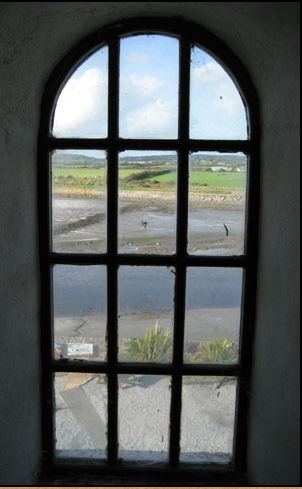
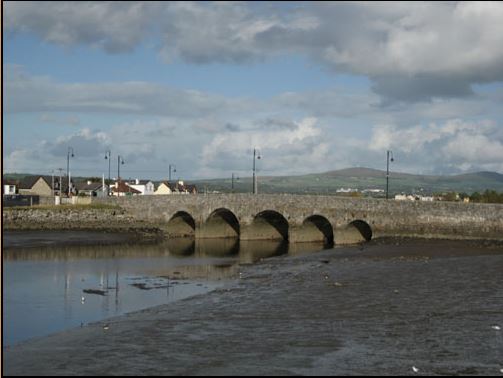
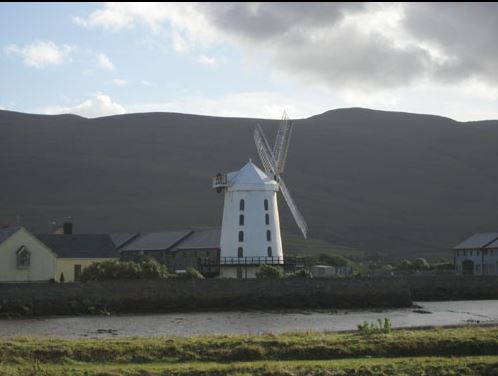
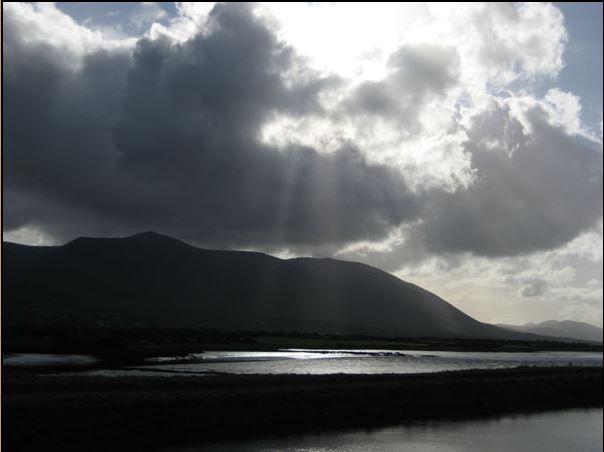
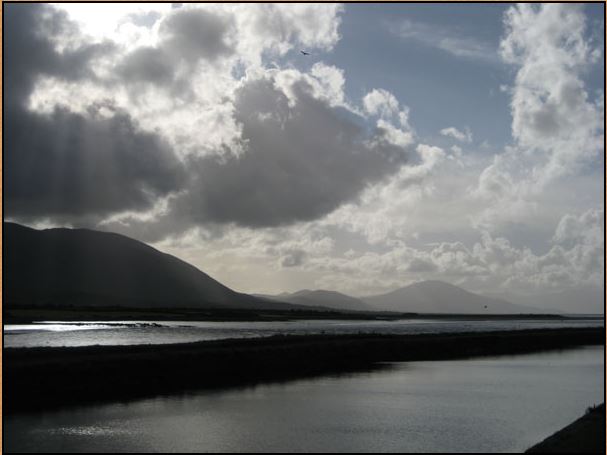
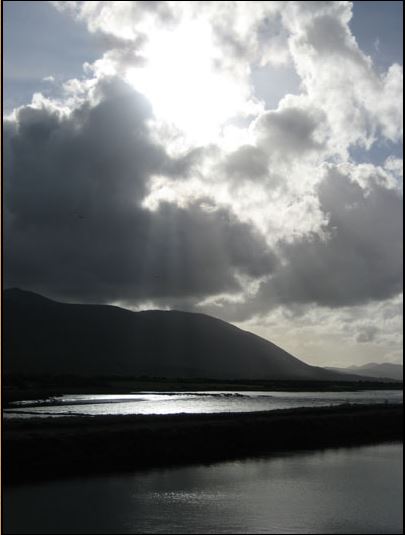
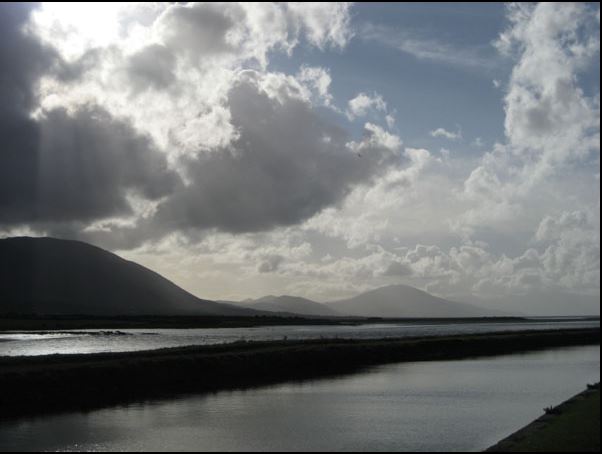
The mill was interesting in itself but there was a
bird
viewing area over the mud flats where we could see curlews, oyster
catchers,
lapwings and many other wading birds. As we left to walk into Tralee
along the canal a cloud covered the sun and the light gave some
interesting
effects. It was a pleasant sunny return
to Tralee. We
passed
several fields of cattle and some
horses, one of which was a still as a statue.
There were a family of swans in the canal basin, male, female
and four
cygnets.





